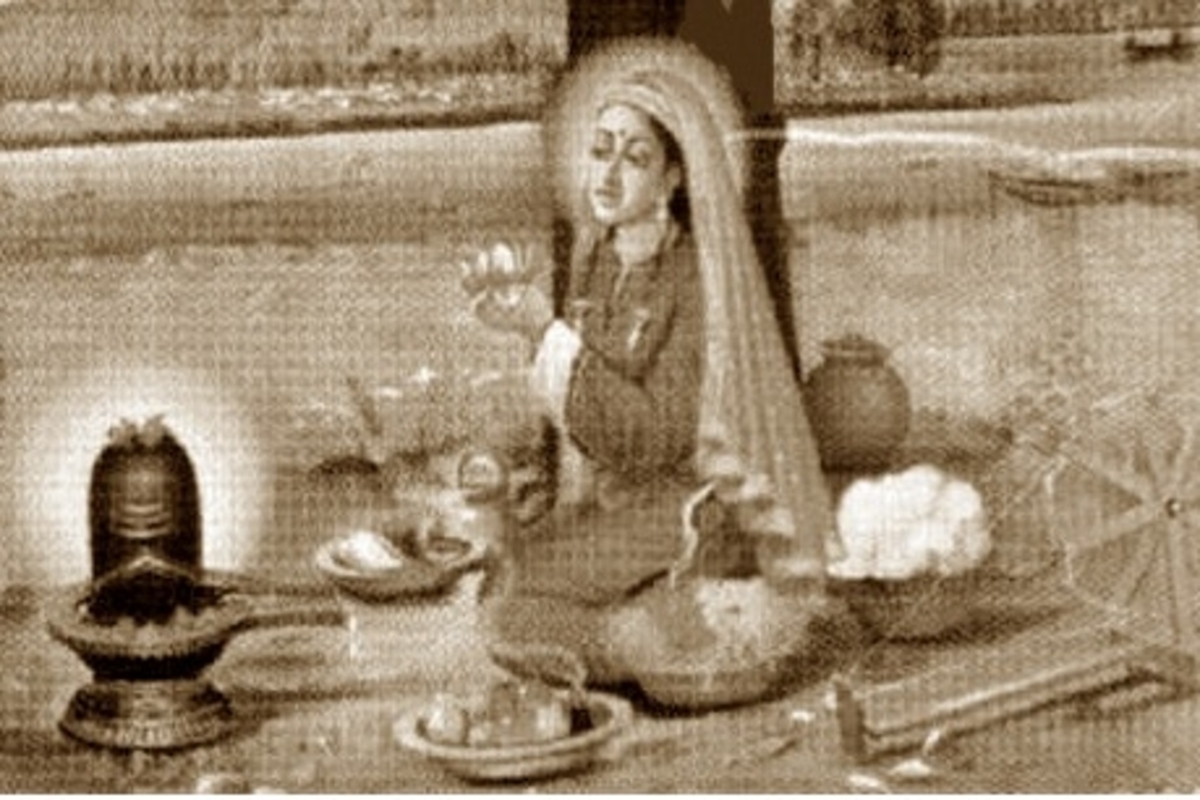Lalleshwari, fondly called ‘Lal Ded’ (Mother Lalla), is among the most prominent Sufi saints of Kashmir who promoted a cultural blend of Shaivism and Islam, which teaches tolerance, coexistence and brotherhood among communities.
She was born in early 1300s. Through her verses, those relate to daily life and the life hereafter, Lal Ded became so popular among the people of Kashmir that at one point, local Pandits considered her to be an incarnation.
She practised Shaivism, but her message of brotherhood made her one of the most revered Sufis of her land. Local Muslims called her ‘Lal Arifa’.
Her mystic poetry is called ‘Vakhs’, which literally means ‘speech’. Her verses are the earliest poetic compositions in Kashmiri language and as such, these are an important part of the history of Kashmiri literature.
The mystic musings of Lalleshwari continue to deeply impact the psyche of the Kashmiri people.
Lal Ded was married at the age of 12. She left home at the age of 24 to take ‘Sanyas’ (renunciation).
Her encounter with another great Sufi saint of Kashmir, Sheikh Nooruddin Wali, called ‘Nund Rishi’ by the local Pandits, is famous all over Kashmir.
It is said that after being born, Nund Rishi refused to be breast fed by his mother.
Lal Ded came and told the child, “If you are not ashamed of being born, why are you ashamed of being breast fed.”
The Rishi is then believed to have been breast fed by Lalleshwari as his foster mother.
One of her famous ‘Vakhs’ reads in translation as:
“The soul like the moon, is now, and always new again
And I have seen the ocean, continuously creating
Day will be erased in night
The ground’s surface will extend outward
The new moon will be swallowed
In eclipse, and the mind in meditation”
The influence of Lal Ded on the life and teachings of Nund Rishi was so profound that many Kashmiris believe that the Rishi imbibed Sufism and renunciation through Lal Ded’s milk.
Local Muslims and Pandits have never, in their history, distinguished between the Sufi saints of Kashmir on the basis of religion.
For Kashmiris, the real message of the Sufi saints has been their love for God’s creation and the preservation of peace, tolerance and brotherhood among communities.
The enemies of this traditional brotherhood have shaken its edifice momentarily.
It is hoped that these enemies of Kashmir’s eclectic culture called ‘Kashmiriyat’ do not succeed in demolishing the centuries old mutual faith the two communities have in coextensive.












